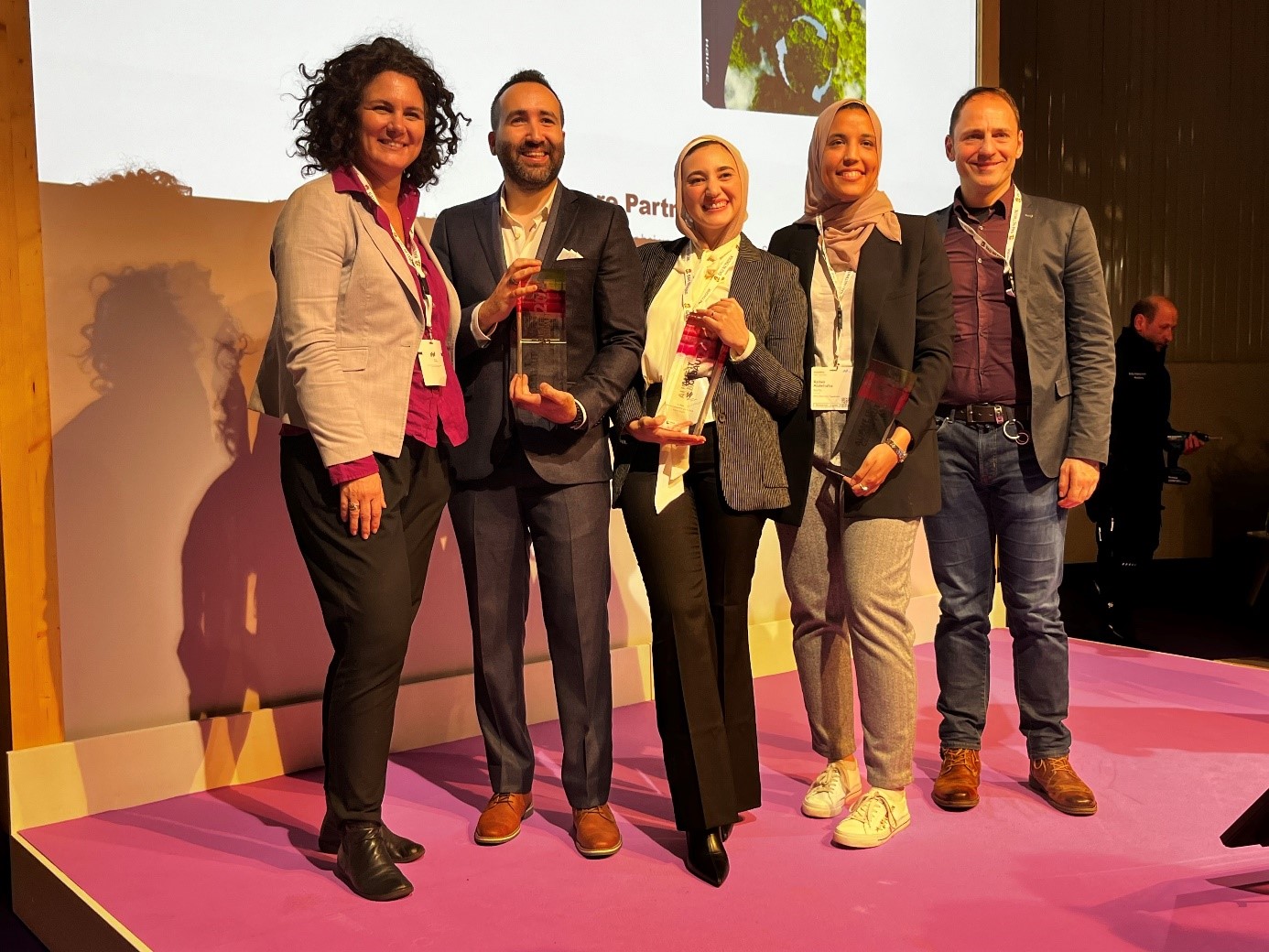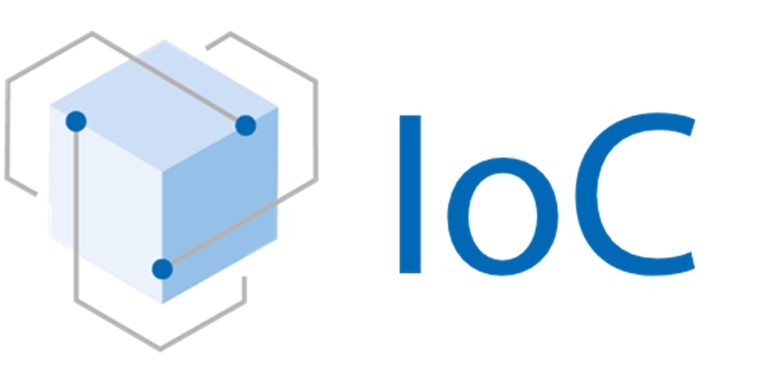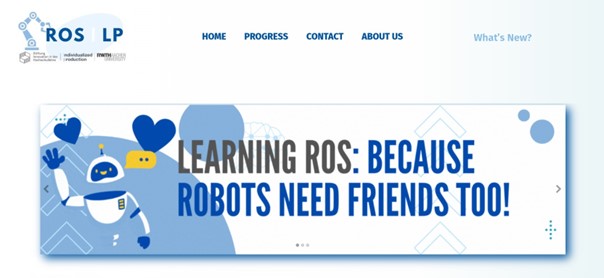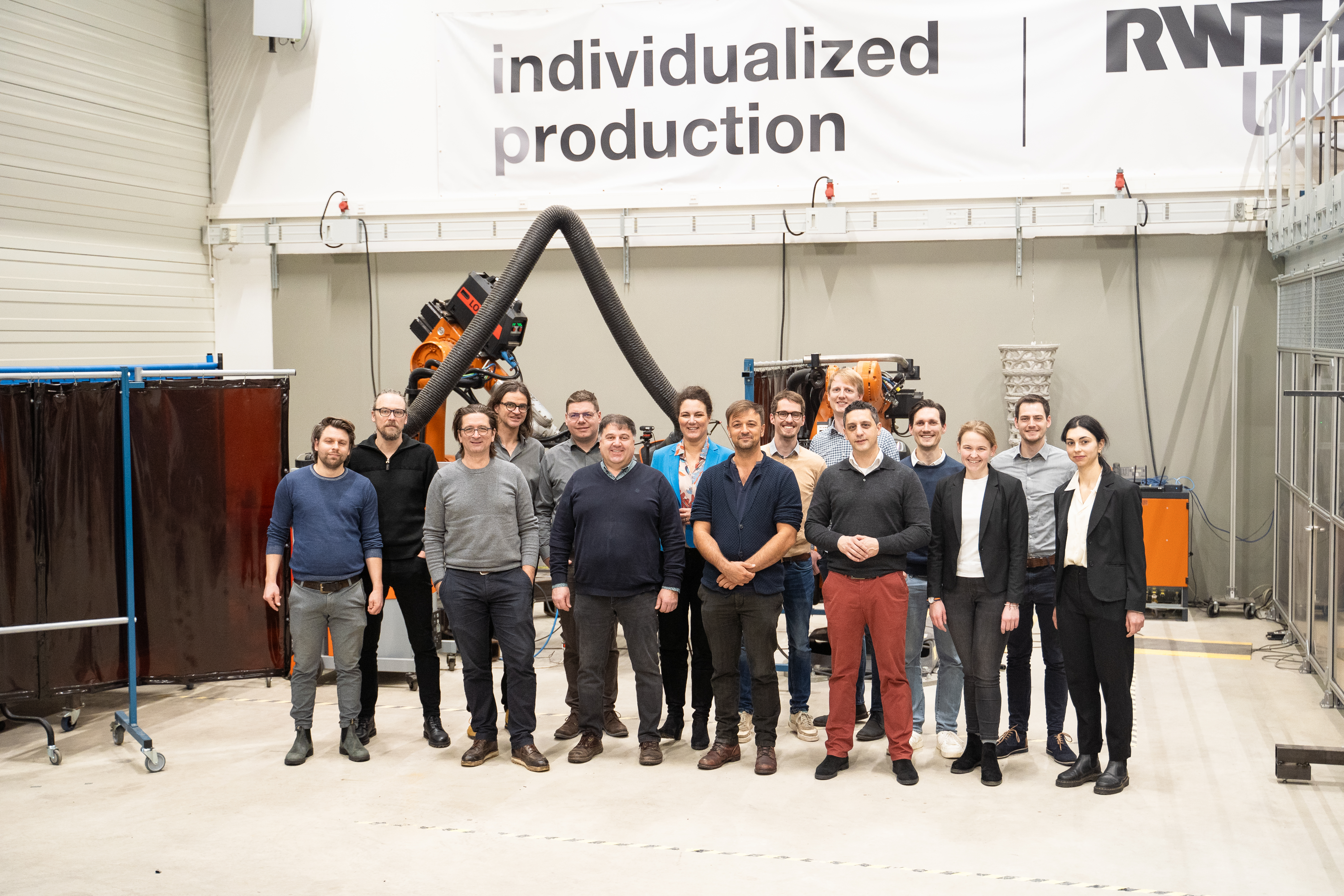

In the competition “Built on IT - Building professions with a future”, the RKW Competence Centre honoured the most innovative and at the same time practical digital solutions for young building professionals. Yasmin Ragab, Radwa Elsobki and Noureldeen Nagm, students from the international Construction & Robotics master’s programme, won the first prize for their project “OpenCV and BIM integration for the positioning of panels”. Congratulations!
The project was part of the Course CR_Prototyping Project (PT), supervised by Mr. Picchi and Prof Sigrid Brell-Cokcan.

The book on the BMBF-funded project IoC - Internet of Construction - Information networks for cross-company collaboration in the construction industry’s production chains is now available. Find out more about various fundamental and innovatve topics such as construction logistics, construction progress monitoring, intralogistics, BIM, ontology, robotics, automation, IoT and much more.
Last year, we have successfully finished the ROBETON Project. Rising raw material prices and climate change require a rethink in the handling of existing material resources and existing buildings. By digitally upgrading a demolition machine from the BROKK DA GmbH company to a (partially) automated robot, a new sustainable process for the safe, controlled deconstruction and subsequent reuse of concrete components as a source of secondary building products was developed at the Chair of Individualized Production at RWTH Aachen University. In addition, the project is supported by the project partners Hilti Cooperation and Brokk DA GmbH as well as the associated project partners PORR AG, EIFFAGE, LEONHARD WEISS GmbH & Co. KG, HKS Dreh-Antriebe GmbH, Kerschgens Werkstoffe & Mehr GmbH, IMF Group and igus GmbH.
The ROBETON research project was funded by the Federal Institute for Research on Building, Urban Affairs and Spatial Development (BBSR) on behalf of the Federal Ministry of Housing and Urban Affairs (BMWSB) with funds from the Zukunft Bau research grant and was awarded second place in the 2022 BAUMA Innovation Prize in the research category.
… and the breaking news are: ROBETON continues – stay tuned for our journey for the safe and controlled deconstruction of concrete components.
The project was led by Univ.-Prof. Dr. techn. Sigrid Brell-Cokcan and managed by Christoph Heuer. We would like to thank all researchers Christoph Heuer, Joo Lee, Victoria, Aaron Lentes and our Media Team: Simon Laprell, Marica Vitt.

The main objective of the FREIRAUM project is to teach and learn Robot Operating System (ROS) in the construction robotics field. ROS is a framework that has established itself over the last 15 years in the robotics and automation industries as a powerful tool for developing complex engineering systems. Meanwhile, ROS has become a widely used standard in robotics. Thanks to its scalability, efficiency, and user-friendliness, ROS offers a very realistic virtual environment for the use of automated construction machines and robots. With ROS, technical procedures and processes as well as complex robot simulations can be realized and simulated dynamically.
At RWTH Aachen University, students have access to learning materials in the form of videos, multiple-choice tests, and virtual labs. They receive guidance through complex robotics topics, progressing step by step. In addition to ROS lessons provided through lecture videos and assessment tests, each student has the opportunity to implement and test their own projects in a virtual environment.
This project is supported by the Stiftung Innovation in der Hochschulehre and led by the Chair of Individualized Production at RWTH Aachen University.
The project was led by Univ.-Prof. Dr. techn. Sigrid Brell-Cokcan and managed by Davide Picchi. We would like to thank all researchers Davide Picchi, Dr. Sven Stumm, Zhao Zhongqian and Christoph Heuer.

Excited to share that we kicked off the Construction vertical within the Cascaded Funding Project of the TARGET-X initiative here in Aachen! It was an inspiring gathering where we set the ReStage (Stage for Reuse) for a multimaterial demonstrator for #automated #DeConstruction on our Reference Construction Site at RWTH AACHEN UNIVERSITY for future collaboration, open innovation, and impactful outcomes for 5G in Digital Construction. Looking forward to the journey ahead as we work together towards our shared goals of Circular Construction.
A warm welcome to our new research partners: LIGNOTREND Produktions GmbH, RST Stahlbau GmbH & Co. KG, kadawittfeldarchitektur GmbH, Florack Bauunternehmung GmbH, and wh-p GmbH. Together, we’re poised to make waves in the realm of construction innovation.
The TARGET-X project is funded by the Smart Networks and Services Joint Undertaking (SNS JU) under Horizon Europe (funding number 101096614).